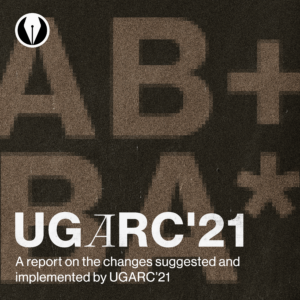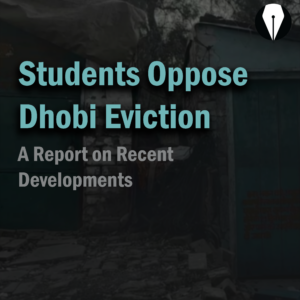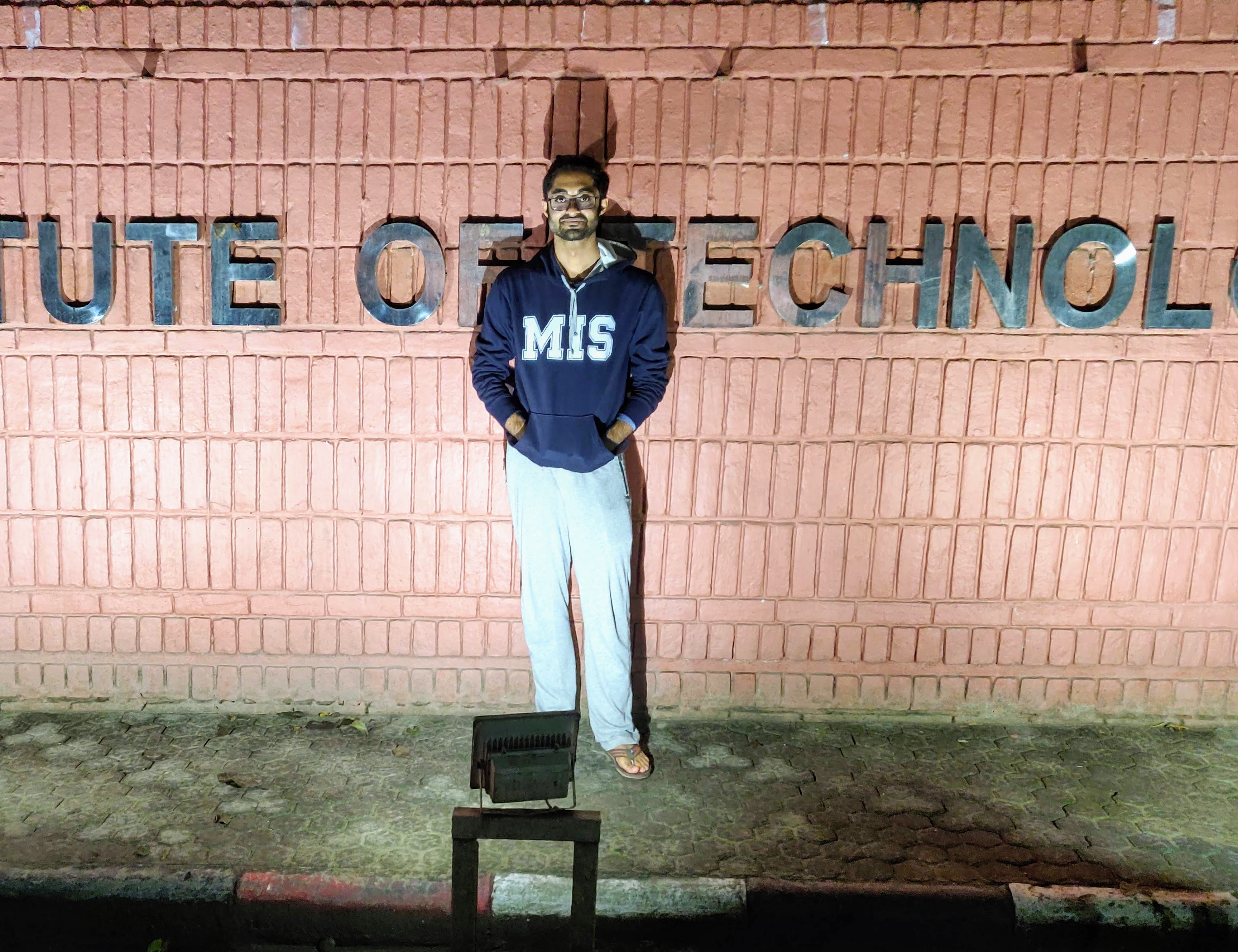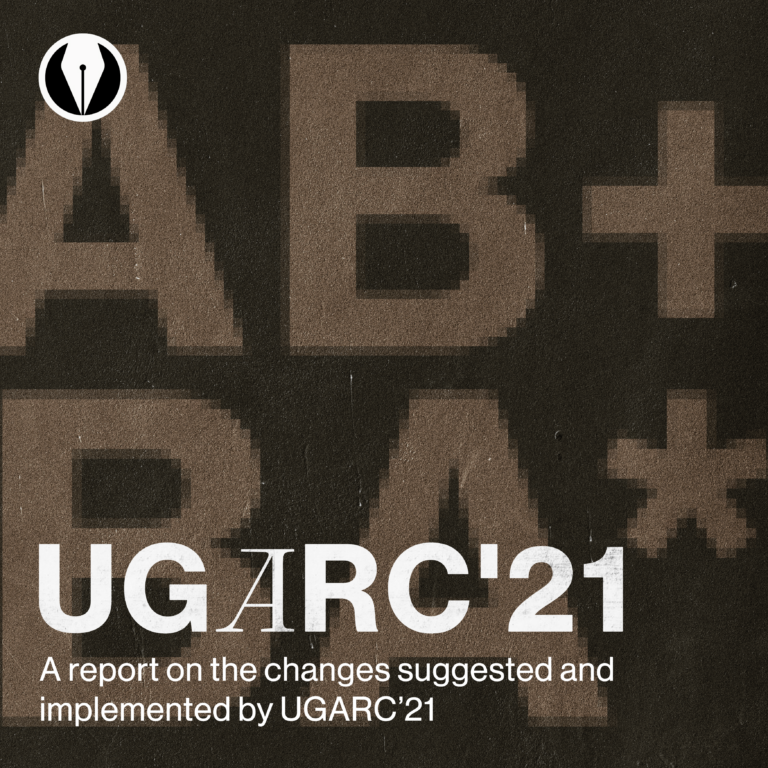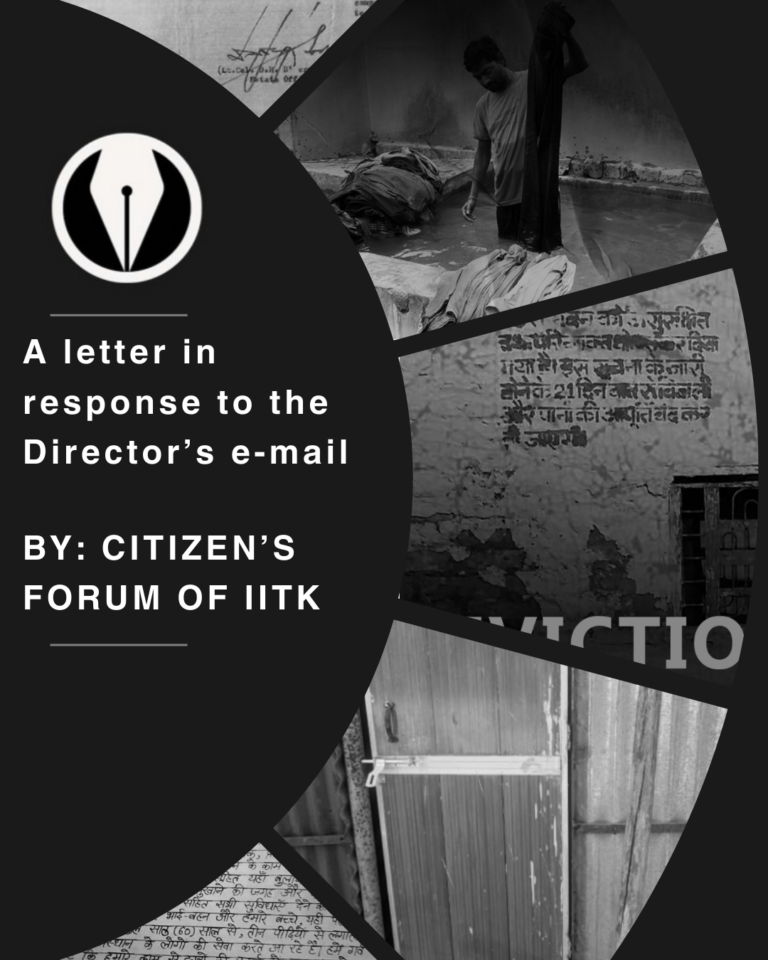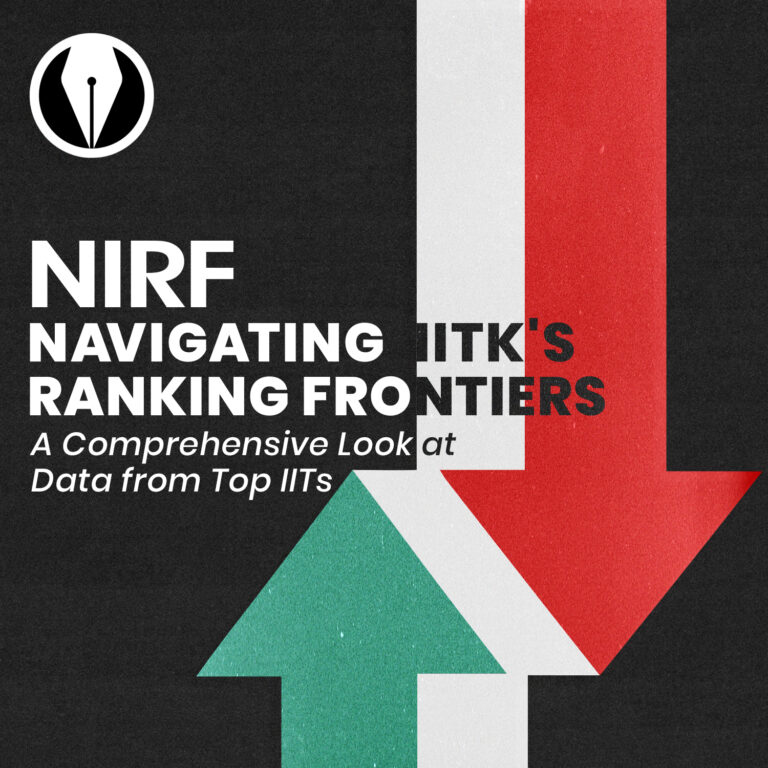Vedaant Sikka, President, Students’ Gymkhana, writes about the issue of campus re-opening and reaches out to the general body members to provide a clear sense of what has transpired so far and what the plan is going forward.
Disclaimer:- The views presented below are the author’s own and are not in any manner representative of the views of Vox Populi as a body or IIT Kanpur in general.
The motivation behind this is that I feel it is important for me to communicate with all of you directly considering the online mode has made it difficult for all of us to stay in touch. I would request all of you to please not cherry-pick the statements that have been made and to interpret the article in its entirety and in the right context. The article does not present any moral judgments on any of the stakeholders and is not in any way an indication of who/what is right and wrong.
Firstly, we should take note of our (the students) point of view and motivations and also the institutes about campus reopening. From the Institute’s side, a good place to start would be to talk about the risk and the appetite the institute has to manage risk. Recently, the institute faced this situation where it believed that the existing facilities and infrastructure, both inside and outside the campus, was inadequate to manage the number of cases they had at hand. Hence, the decision was taken to send the students back home from campus. While the above statement is not a judgment on whether the decision to send back students was right or wrong, the institute’s alignment on this matter is to take a low-risk approach towards calling back students. Hence, they are incentivized towards calling smaller batches in the initial phases.
Also, the institute is aware of the fact that online education delivery has not been very effective as compared to the offline system. Students have certainly not liked the format & more efforts are also required from the faculty side in terms of preparations, and still, the output has not been up to the mark.
From our perspective, online education, which comprises not just the courses, but also the interaction with everyone on campus, access to the best academic resources and the opportunity to be part of offline festivals, clubs, societies etc, has absolutely not been able to deliver in comparison to the offline system. Students are deprived of the peer group they had on campus. It is a well-known fact that the group of students at IITK is one of the best in the country and the online model has clearly posed a major hurdle in terms of staying in touch and thus, presents a problem of value and expectation.
The problem is that we(the student body) are facing the lack of experience that we were promised while admission to IITK. This problem comprises the online mode of education in comparison to the offline model, the lack of proper peer interactions & opportunities to develop into versatile personalities. Another severe major concern with the online semester(s) has been its effect on the students’ mental health. The lack of having the ability to readily reach out to our beloved friend circle and have bulla sessions has resulted in deteriorating mental health. The experience of studying at home has proven to be significantly ineffective to impart a holistic experience, to add to this, this model of education has also magnified the disparity in the resources available to students at their homes. Considering that on campus, the students had access to more or less the same set of resources, the online mode has brought forward the severe inequality in the privilege of different sections of the student body.
From the institute’s side, one of the major problems they faced while calling back the students and the subsequent management during the second wave of COVID19 was that the students took rules and regulations lightly, and in adverse circumstances, there would not be anyone to take care of students on campus. While we are made to sign an undertaking, it is also important to understand that the responsibility of the institute does not end there. As the risk of a fatality is significantly high, in the circumstance that something terrible happens, the institute would have to face the wrath of the various stakeholders such as families, students as to why the students were called back.
Coming to a few developments in the recent past and what is being decided on going forward, a brief timeline with the following sequence of events should help paint a clear picture.
- Feedback was collected from various systems like the Health Centre, Security Teams, Shopping Centres and Hostel wardens.
- It was communicated from the institute’s side that it didn’t have confidence in the conduct of students due to instances of transgressions and flouting of rules.
- We recognised the need to regain the administration’s confidence in the students, and to tackle this problem, a sub-committee of the students’ senate was made with a few of its major agendas being the following:
- The sub-committee was tasked to create plans and standard operating procedures for various hypotheses.
- Through the formulation of procedures and contingency plans, the sub-committee would present a thorough plan of action to the administration to build a sense of confidence in the student body.
- After receiving updates from the institute, the subcommittee has been working on future plans to bring back students in a systematic manner.
- The subcommittee and the HECs, have been working towards building confidence amongst wardens by formulating various guidelines, and task force plan that you can read about in the report and minutes.
- A central task force and multiple hall task forces will be deployed to improve regulation for COVID specifically.
Regarding a plan to call back resource-constrained UG students and Masters students, we worked on devising mechanisms and forms to effectively call the resource-constrained students and the plans for the same have been shared with the institute now. They are currently discussing the same and will let us know about any updates.
An open house was conducted by us for the PhD students recently. A call for a similar open house for the rest of the students was suggested to the institute as well. Subsequently, a message was shared to the Heads of Departments to hold open houses for students of their respective departments to gauge the issues being faced by both UG and PG students. The HoDs play a major role in the decision-making system in the institute and are aware of various plans in place regarding the matter of campus reopening, and thus, having HoDs in the chain of communication would help present the students’ side of things efficiently.
Recent developments on the campus reopening issue are as follows:
- 2 Batches of PhD students are being called back to campus on 19-20 July and 29-30 July. The frequency of batches is 10 days, starting with the first couple of days for the arrival of students, followed by a 3-day quarantine. An RT-PCR test might be conducted on Day 6, the results of which would be obtained on Day 7. Days 8 and 9 would be for students vacating the quarantine hostels and maintenance and cleaning of the rooms would have to be ensured. Day 10 would serve as a buffer for the entire procedure and Day 11 would be the arrival of the new batch of students.
- The frequency of calling back students was 20-25 days in September 2020 & had come down to 15 days in March 2021.
- It is planned to bring 300 students back in each of the first two batches. We have asked the institute to increase the batch size. However, because of the risk involved, the institute has decided to start slowly with at least the first couple of batches and then consider increasing the size in the future batches.
According to current estimates, an estimated timeline is to have all PhD students back by August third week or August end. In September, we have proposed plans to at least begin with the UG batches along with the Masters’ Batches. As the situation with the pandemic is dynamic, any updates on this timeline would be provided as and when things are clearer.
Since the situation presented to all of us is unpredictable and that there is a lot of uncertainty involved, the problem of misinformation has caused a lot of issues. Social Media and conversations in social circles have had various implications on all of us and one major issue with this has been that solving the problems at hand has become inefficient and has negatively impacted the drive and motivation. In the current scenario, a lot of instances might come up of people being seen as working towards the goal of campus reopening individually or otherwise. It is important to realise that even though the intentions of these initiatives might vary, the outcome would be independent of them. If it was possible to solve problems that way, most of the issues we face right now might have already been dealt with.
In my opinion, there is a lack of clarity between the parents and the institute administration. The Institute is inclined to consider even the worst-case before coming to a decision. There is a need to bridge this gap and ensure that the institute is aware of the parent’s point of view about sending students back to campus. The parents (and students) should also know the actual risk the students will face based on the facilities available on campus. This will also allow parents (and students) to decide for themselves on what is in their best interest.
On a concluding note, the core idea is that the view of people who are responsible for students at home (i.e. parents) needs to be properly told to the people who are responsible for students on campus (i.e. institute). All of this, while knowing that students are not kids. They have to take on independent responsibility for themselves and be involved equally (if not more) in this process.

